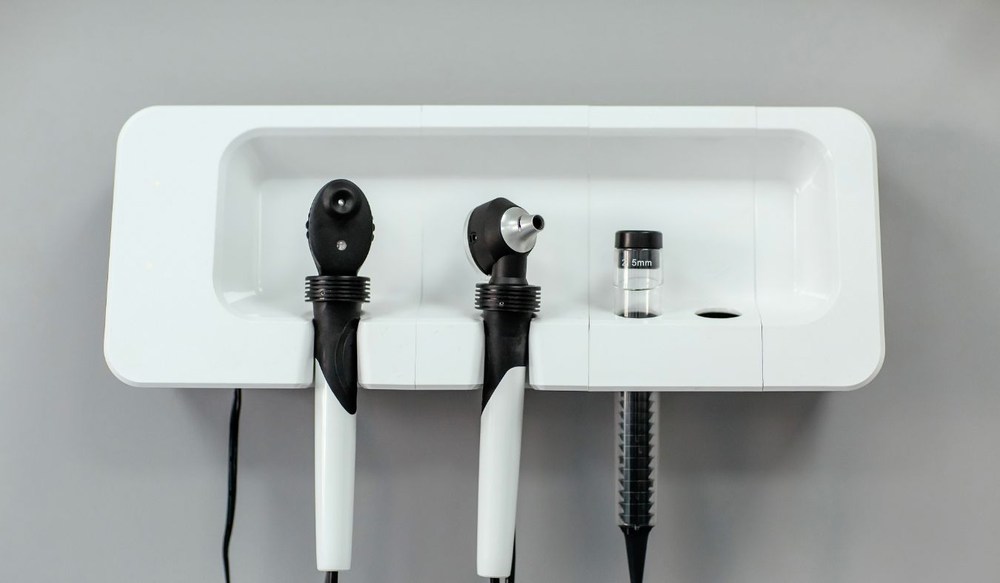The Role of Hearing Tests in Preventative Health Care
Most people schedule regular checkups for their teeth, eyes and overall

By: admin | September 25, 2024
Hormonal changes are an essential part of our lives, influencing much more than just reproductive health. While we commonly think of hormones in relation to stages like puberty, pregnancy or menopause, they also play a key role in maintaining hearing health. Fluctuations in hormone levels can affect how well we hear, and ongoing research is uncovering more about this surprising connection. From estrogen and progesterone to thyroid and cortisol levels, hormonal shifts can impact hearing at different stages of life for both men and women. Understanding these links can offer valuable insight into how our bodies manage auditory function.
Hormones are chemical messengers in our bodies that regulate many functions, including our ability to hear. Changes in your hormone levels can significantly impact your hearing health. For instance, imbalances or fluctuations in hormones can lead to changes in your hearing ability.
Hormones act as the body’s internal communication system. They travel through your bloodstream, carrying messages from one part of your body to another. These messages influence many of our body’s functions. From regulating metabolism and growth to controlling immune response and managing stress levels, hormones are at work behind the scenes. When it comes to hearing health, hormones can affect both the structure and function of your inner ear, impacting how well you hear and process sounds.
Building on what we’ve learned about hormones and their functions, it’s time to shed light on how hormonal shifts can impact your hearing health. While this may seem like an unusual connection, the reality is that our bodies are interconnected systems and changes in one area can have effects elsewhere.
Hormonal shifts can influence your hearing in several ways:
Estrogen, a hormone primarily associated with female reproductive health, has been found to have a significant influence on our hearing abilities. Research suggests that estrogen can help protect and preserve our hearing capabilities. This hormone seems to play an important part in maintaining the health of the inner ear and its ability to process sounds effectively. So, when levels of estrogen fluctuate or decrease (such as during menopause), you might notice changes in your hearing.
Further studies are needed to fully understand this relationship between estrogen and hearing. However, being aware of this connection could be beneficial for you in managing your hearing health more effectively. If you notice changes in your hearing, it may be worth discussing with your audiologist whether hormonal changes could be playing a part.
Progesterone, commonly associated with pregnancy and menstrual cycles, also has effects on your auditory health. Did you know that progesterone is known to have protective effects on the auditory system? Research has shown that higher levels of this hormone can potentially guard against hearing loss.
However, like with estrogen, fluctuations in progesterone levels can lead to changes in your hearing. So, it’s important to keep this in mind when monitoring your hearing health.
Let’s consider a significant life event for many women – menopause. This natural phase in a woman’s life brings about numerous changes, one of which could be to your hearing abilities.
Menopause triggers a decrease in the production of certain hormones like estrogen and progesterone, both of which play roles in maintaining our auditory function. As these hormone levels drop, you might experience changes in your hearing. Being aware of this potential impact can help you manage your hearing health more effectively during and after menopause.
From the hormonal changes during menopause, let’s now shift our attention to another significant life event for women – pregnancy.
During pregnancy, your body undergoes a multitude of changes, including hormonal shifts that can impact your hearing. For instance, the surge in progesterone and estrogen levels can lead to temporary alterations in your hearing abilities. It’s also worth noting that fluid retention, a common occurrence during pregnancy, can affect the inner ear and potentially cause temporary hearing changes. Being aware of these possible shifts allows you to better monitor your hearing health during this important time.
Thyroid hormones are essential for many bodily functions, including metabolism, heart rate and even hearing. Changes in thyroid hormone levels can have a profound effect on your hearing abilities. Both hyperthyroidism (an overactive thyroid) and hypothyroidism (an underactive thyroid) can lead to alterations in your hearing. This is due to the role these hormones play in maintaining the health of your inner ear.
If you notice changes in your hearing, it could be related to shifts in your thyroid hormone levels. By keeping this potential link in mind, you’re better equipped to address any concerns with a audiologist promptly.
Insulin, primarily known for regulating blood sugar, has a critical role in maintaining hearing health. Beyond its impact on glucose metabolism, insulin helps ensure that your body’s cells, including those in the inner ear, receive the energy they need to function properly. The inner ear relies on glucose for energy, which supports processes like sound transmission and signal conversion to the brain. When insulin levels are imbalanced, this glucose supply can be disrupted, leading to potential issues with auditory function.
A lack of proper glucose transport to the inner ear cells can cause damage over time, potentially leading to hearing loss. Conditions like insulin resistance or diabetes, which interfere with insulin’s ability to regulate blood sugar, may also put individuals at a higher risk for hearing impairments. For this reason, monitoring insulin levels and managing blood sugar is not only crucial for overall health but also for preserving hearing function in the long run. Keeping insulin in check may offer a way to help protect your ears from the subtle, yet serious, effects of glucose mismanagement.
We now turn to testosterone’s influence on male hearing health. Testosterone, a hormone primarily associated with male reproductive health, also impacts auditory function. Studies suggest that testosterone can impact the hearing abilities of men. Changes in testosterone levels, especially lower levels, may be linked to alterations in hearing capabilities. This is why it’s important for men to be aware of this potential connection and consider it as part of their overall hearing health management strategy.
If you notice changes in your hearing, it could be worth discussing with your audiologist whether hormonal changes could be a contributing factor.
Building on what we’ve learned so far, let’s now address how to manage hormonal imbalances for better hearing health. Hormonal fluctuations can significantly impact your hearing, but by staying informed and proactive, you can mitigate these effects. Regular check-ups with your hearing specialist and maintaining a healthy lifestyle can go a long way in ensuring your hormones and hearing stay balanced.
Hormonal imbalances can sometimes lead to changes in your hearing, and recognizing these signs can indicate when it’s time to see an audiologist. If you’re experiencing unexpected hearing loss or fluctuations in your hearing, it could be linked to hormonal shifts, especially during life stages like pregnancy, menopause or thyroid disorders. A sudden decrease in hearing clarity or difficulty following conversations might be more than just age-related – it could signal that your hormones are impacting your auditory system.
Other signs to watch for include persistent ringing in the ears (tinnitus), dizziness or ear fullness, which may correlate with hormonal conditions like hypothyroidism or changes in estrogen levels. These symptoms, combined with fatigue or mood changes, could point to an underlying hormone issue affecting your ears. An audiologist can evaluate your hearing and work with your healthcare provider to determine if hormonal fluctuations are the root cause. Seeking help early on can prevent further deterioration and help you better manage both your hearing and overall health.
Hormonal changes are an integral part of life, but being aware of their potential influence on your hearing can help you stay proactive and informed. If you’ve noticed changes in your hearing and suspect they could be linked to hormonal shifts or imbalances, don’t hesitate to reach out for professional advice. At Audiology & Hearing Aid Solutions, our team is here to guide you through any concerns or questions you may have.
For more information or to schedule a consultation, reach our Clifton, Haskell, Morristown and Pompton Plains, NJ office at: (973) 721-6520, and our Mahwah and Paramus locations by calling: (201) 375-9081
Understanding how different hormonal systems influence your sense of hearing is a key part of managing overall auditory health effectively. So always stay informed and proactive about these connections – they could be more important than you think!

Most people schedule regular checkups for their teeth, eyes and overall
By: admin | October 20, 2025

Getting caught in the rain or sweating during a workout used to mean panic
By: admin | July 29, 2025

Most people know that aging and loud noise can affect hearing, but not
By: admin | June 20, 2025
